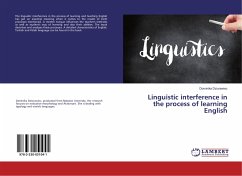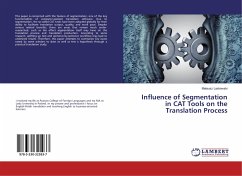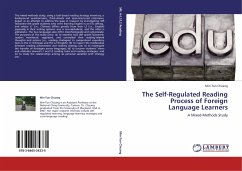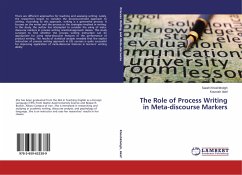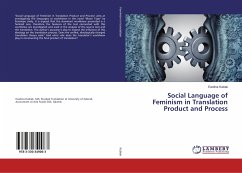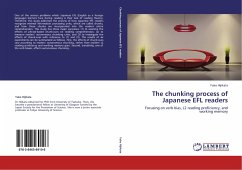
The chunking process of Japanese EFL readers
Focusing on verb bias, L2 reading proficiency, and working memory
Versandkostenfrei!
Versandfertig in 6-10 Tagen
52,99 €
inkl. MwSt.

PAYBACK Punkte
26 °P sammeln!
One of the serious problems which Japanese EFL (English as a foreign language) learners face during reading is their lack of reading fluency. Therefore, this study addresses the process of how Japanese EFL readers recognize minimal information processing units, which are called chunks, and how these chunks are incorporated into the readers' entire comprehension. This study has three major purposes: (1) to examine the effects of phrase-based chunk-cues on reading comprehension, (2) to measure readers autonomous chunking units, and (3) to investigate the effects of chunk-cues with reference to (...
One of the serious problems which Japanese EFL (English as a foreign language) learners face during reading is their lack of reading fluency. Therefore, this study addresses the process of how Japanese EFL readers recognize minimal information processing units, which are called chunks, and how these chunks are incorporated into the readers' entire comprehension. This study has three major purposes: (1) to examine the effects of phrase-based chunk-cues on reading comprehension, (2) to measure readers autonomous chunking units, and (3) to investigate the effects of chunk-cues with reference to (1) and (2). The results of six experiments can be summarized as follows. First, the effects of chunk-cues vary according to readers autonomous chunking, rather than readers' L2 reading proficiency and working memory span. Second, transitivity, one of the verb biases, affects autonomous chunking.




